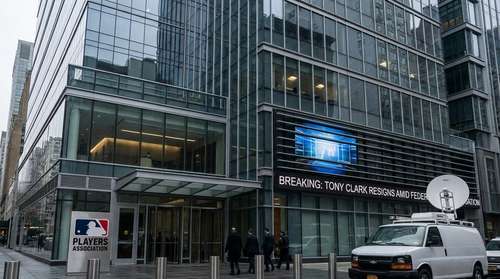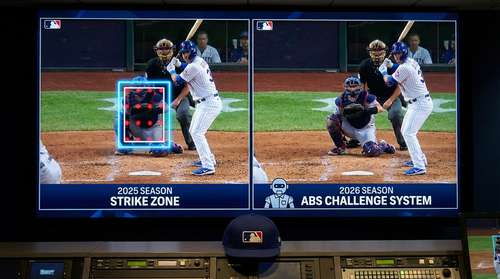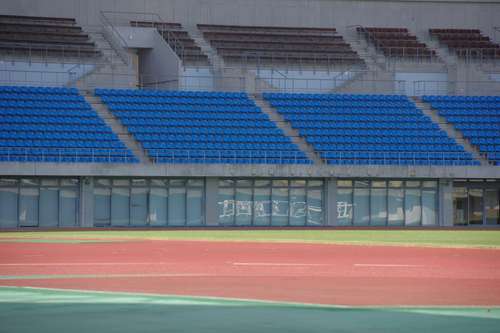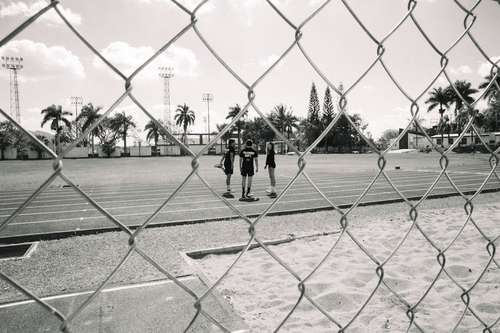Imagine waking up one morning to find out you've been impersonated in an elaborate scheme to siphon off your hard-earned cash. That's exactly what happened to Shohei Ohtani, the baseball phenom who found himself at the center of a shocking fraud case involving his former interpreter, Takehiko Mizuhara. Prosecutors are pushing for a nearly five-year sentence for Mizuhara, who confessed to bank and tax fraud, having swindled close to $1.7 million from Ohtani. It's a story that reads like a crime thriller but with real-world consequences in the sports industry.
The Deceptive Scheme
At the heart of this scandal is Mizuhara's cunning plan to impersonate Ohtani. Imagine having the sheer gall to pretend to be an MLB superstar for a quick payday! Prosecutors allege that Mizuhara managed to transfer $200,000 by posing as Ohtani, leveraging his familiarity with the player's financial dealings.
But how did he pull it off? It all comes down to trust. Mizuhara, as Ohtani's interpreter, had a front-row seat to the athlete's life – from bank accounts to personal habits. He used this insider knowledge to craft a believable persona, fooling financial institutions into thinking they were dealing with the real Ohtani. Mizuhara's actions were a stark reminder of how trust can be manipulated for personal gain.
The sports world has seen its fair share of scandals, but this one hits differently. It’s not about performance-enhancing drugs or betting, but about the betrayal of trust and the misuse of personal relationships. It raises the question: How well do we really know the people who are closest to us?
The Legal Maze
Legal proceedings against Mizuhara have been complex and ongoing. Prosecutors have built a strong case, presenting evidence of the fraudulent transactions and Mizuhara's confession. The legal team is adamant about seeking a nearly five-year sentence, aiming to set a precedent for such crimes in the sports industry.
What’s fascinating here is the legal web spun around Mizuhara's actions. These aren't just bank fraud charges; they encompass tax fraud as well. Imagine the audacity of not only stealing money but also attempting to bypass the IRS. It’s like trying to dodge a fastball thrown by Ohtani himself – bound to end badly.
With the trial in full swing, sports enthusiasts and legal experts alike are watching closely. The implications of Mizuhara's actions extend beyond Ohtani. They touch on broader issues of financial security and trust in professional sports. How do athletes protect themselves from such deceptions? And what can the industry do to safeguard against similar incidents in the future? These are questions that are being hotly debated as the trial unfolds.
Impact on the Sports Industry
This case isn't just a personal nightmare for Ohtani; it's a wake-up call for the entire sports industry. Financial fraud in sports isn't new, but this case sheds light on how those in trusted positions can exploit their roles.
The implications are significant. Athletes, much like public figures, often rely on a team of professionals to manage their lives. From managers to interpreters, these individuals hold immense power and access. Mizuhara's actions have sparked conversations about the need for stricter vetting processes and financial oversight in sports.
Consider other industries like cricket, where the stakes are equally high. Imagine Rohit Sharma or a top player from Inter Miami being victimized in a similar fashion. The ripple effect would be felt far and wide, impacting cricket live scores, IPL matches, and even EPL fixtures. It’s not just about money; it’s about maintaining the integrity of the sport.
As sports continue to intertwine with global business, the need for robust security measures becomes even more critical. The Mizuhara case serves as a stark reminder that the sports industry must evolve to protect its stars.
Reactions from the Sports Community
Unsurprisingly, the sports community has reacted strongly to the revelations of Mizuhara's deceit. Players, fans, and officials have all weighed in, expressing shock and disappointment. The betrayal felt by Ohtani resonates with many who have placed their trust in those around them.
Quotes from fellow athletes highlight the communal sense of disbelief. "It's a reminder that we need to be vigilant," said one player. Another noted, "This could happen to any of us, and that's what's scary." The sense of vulnerability is palpable, and the call for change is loud.
Even beyond baseball, the case has caught the attention of other sports sectors. The NBA finals, the St. Louis Cardinals, and even those following BBC Sport Football are discussing the implications. It's not just about baseball; it's about the broader sports community and the protective measures needed to prevent such scandals.
Lessons Learned and Moving Forward
So, what can we learn from this saga? First and foremost, it's a lesson in trust and vigilance. Athletes and their teams need to be more cautious about who they allow into their inner circles. It's about creating checks and balances to ensure that trust isn't misplaced.
For the industry, it’s a call to action. Implementing stricter security protocols and financial oversight could prevent future incidents. The case also highlights the importance of education, ensuring that athletes are aware of potential risks and how to mitigate them.
As the legal proceedings continue, we'll likely see changes in how the sports industry approaches financial security. This case could be a catalyst for reform, prompting leagues and organizations to reevaluate their current practices.
In the end, Mizuhara's deceit is more than just a headline; it's a lesson for us all. It’s a reminder that even in the glamorous world of sports, reality can bite hard. And as fans, we can only hope that such incidents become a thing of the past.




